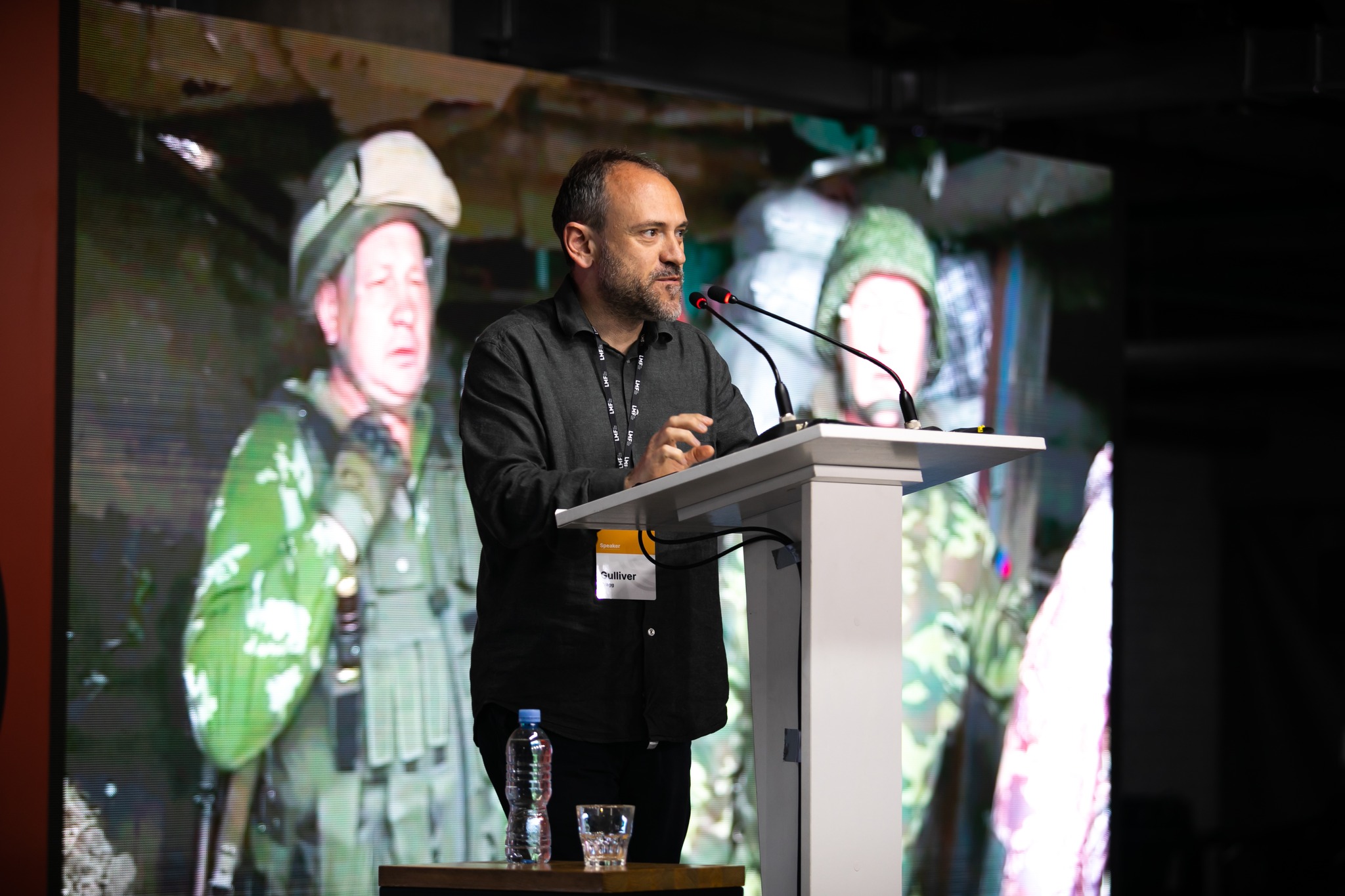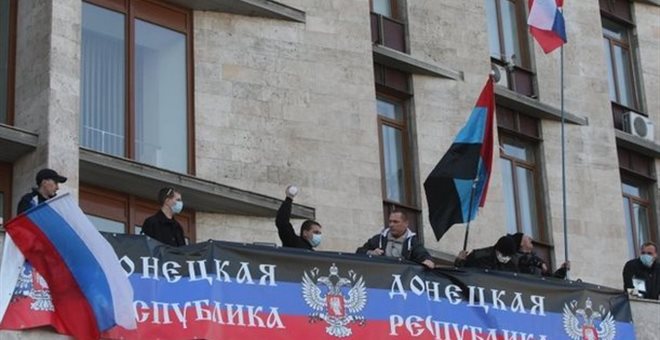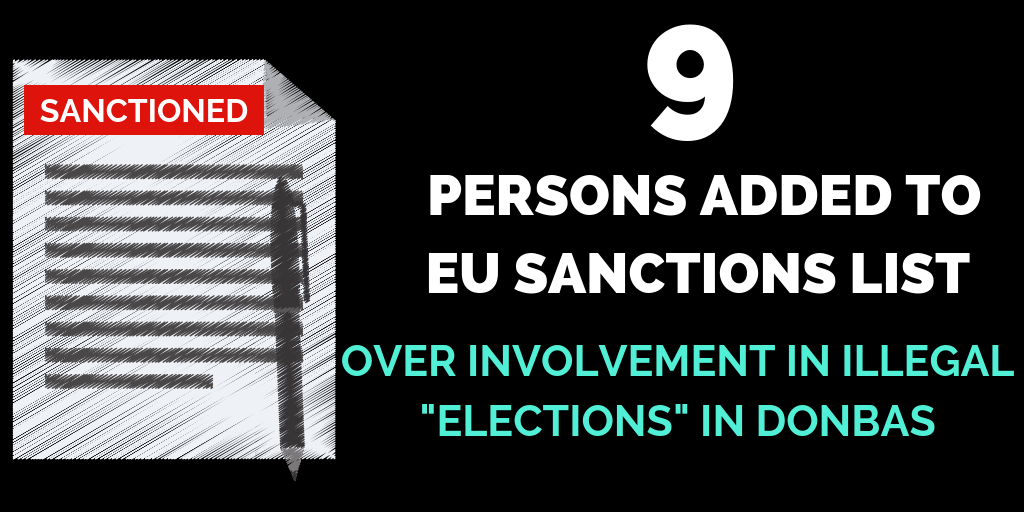Gulliver Cragg, a correspondent for France 24, has been covering Ukraine since 2010 and residing there since 2014. Speaking at the Lviv Media Forum 2023, he shared his personal journey on reporting about Ukraine, including his shift towards referring to “Donetsk People’s Republic” fighters as Russia-backed, the dilemma of engaging with the opposing side, and shed light on a recent scandal and the subsequent improvements in France 24’s editorial policy regarding Ukraine coverage.
Evolution of narratives: from “pro-Russian” to “Russia-backed'”
Today in 2023, all the mainstream Western media need to ask questions about how the narrative of a separatist uprising in Donbas among Russian-speaking people managed to gain traction. It happened not immediately in 2014. But it gained more attention as the years went by.
I revisited my own reporting from 2014. I found a piece I wrote that referred to a group of armed “pro-Russian” forces in Mariupol. The piece detailed injuries and a death toll on the “pro-Russian” side. As you see, I was using the term pro-Russian. And I knew that these guys were directed by Russia, but then everybody was calling them pro-Russian separatists, and I didn’t want to be too pedantic. After all, they were Ukrainian citizens. They did want to separate from Ukraine. People were saying it was not a false definition, even though Ukrainians object to this term. As a correspondent, you don’t want to go too much against the grain of the general editorial policy of the media you’re working for. You don’t want to get labeled as a guy who’s too pro-Ukrainian and too pedantic. For a while, I went with what the other people were saying.
I quite quickly changed and moved on to the term “Russia-backed separatists.” However, hardly anyone was doing that then, and I didn’t want to see myself as a campaigning journalist. Now I feel like I should have tried harder; lots of journalists should have done so. Nowadays, even if someone spells Odesa with two S’s in English, I call them up, and, of course, nobody minds anymore.
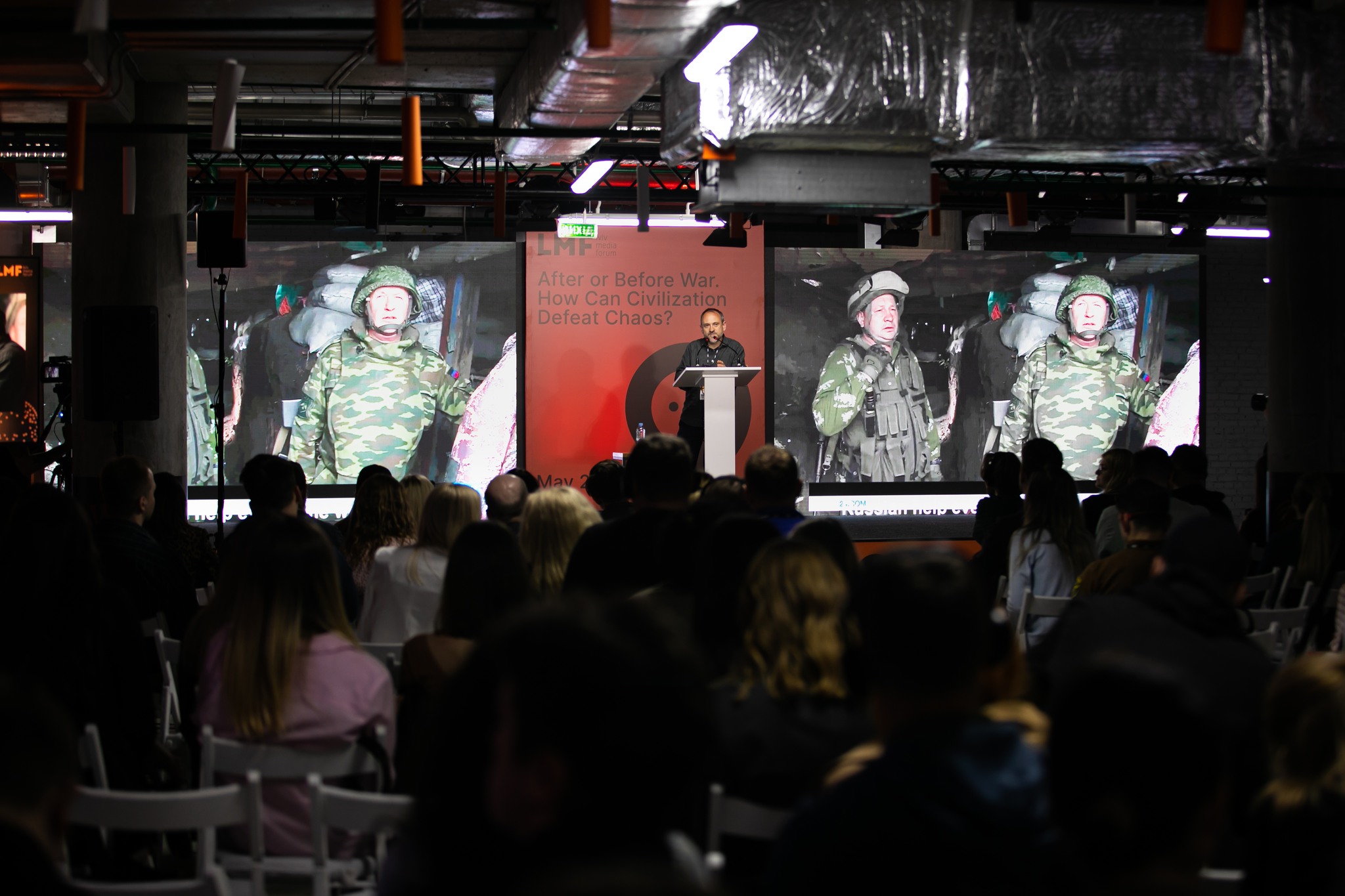
Maybe we should have listened more to the Ukrainians back then and not let this Russian narrative creep into the mainstream perception. However, it’s not obvious how we could have avoided this if we apply the standard principles of journalism where you go to a place and talk to people you meet. In Eastern Ukraine, you’ll meet people who’ve got pro-Russian attitudes. Obviously, some people are skeptical of the Ukrainian government. But the key difference is that those people would never have taken up arms if they hadn’t been given by Russia and if Russia hadn’t wanted them to do that.
Even today, trying to explain this to people who don’t understand Ukraine well, you feel you’re pointing out some nuance. But that’s not a nuance. It’s the difference between this being an internal conflict and Russian aggression. It should have been framed as Russian aggression much more clearly from the beginning.
This is something that I bear in mind all the time, especially considering that among France 24’s viewership, there are many people who still think this all started with an uprising in Donbas that the Ukrainian army moved in to crush. We’ve got a lot of viewers in Africa and the Middle East who are currently subjected to Russian propaganda very strongly.
To talk to “separatists” or not? How one interview unveiled Russia’s role in Donetsk
Many people in Ukraine and the Ukrainian government and military expect that the things we [journalists] do will influence the tide of the war. They have their hopes and opinions, but they don’t always amount to them saying, “just let the journalists have completely free access, and the truth will come out.” Most foreign journalists covering Ukraine have, at some point, disagreed with some Ukrainian authorities, whether about access or the way they seem to be expected to present the story.
That’s natural, but I believe we also have to remember we’re in a very exceptional situation, a desperate one. Rebecca Harms said [during LMF] that Ukraine has to win this war. All other priorities indeed fall away behind that one. I don’t think that the Ukrainian military or politicians have any other goal. We don’t disagree about the goal and what Ukraine is trying to achieve — only about the means…
What slightly troubles me is the underlying notion within the Ukrainian authorities that no one should ever cross to the other side to conduct reports.
In 2016, my colleague Eleanor Voloshin was in Donetsk. She was with some so-called soldiers of the so-called Donetsk People’s Republic. She asked them whether it was true that they were getting weapons from Russia. They said: “No one is helping. Every time we resist a Ukrainian attack, we pick up enough of their weapons to supply a whole unit. It’s all trophies and spoils. We’ve got a lot of trophies.”
"We found that people who are susceptible to Russian conspiracy narratives feel the lack of agency and control over their lifes. We should not bombard them with facts but look for innovative solutions to enhance their agency,” says Peter Pomerantsev at #LMF2023 pic.twitter.com/L0Bnpzccnf
— Euromaidan Press (@EuromaidanPress) May 27, 2023
Yet, these men can’t explain how exactly they pick up the Ukrainians’ weapons since this is mainly an artillery war. Direct contact between the sides is rare. But since Russia denies providing any military support to the separatists, they stick to the official line. To help push that line, the “DNR” has its own news agency, DNA (Donetsk News Agency), whose reporters are apparently not afraid to resort to a bit of fakery occasionally.
I remember when Eleanor overheard a DNA journalist and a DNR commander having a conversation about disguising themselves as Ukrainian soldiers to commit atrocities. At that time, we were trying as hard as we possibly could to prove what Russia was doing in Donetsk and all the fakery they were involved in. Eleanor was so excited that she got this on tape. That’s a report that we were quite proud of at the time. We felt it was necessary to prove to the world what Russia was playing at here, and it was pretty hard to find that proof.
But look at how it’s presented on our website. This was back in 2016. “The Russian secret behind Ukraine’s self-declared Donetsk Republic.” What kind of a secret? It certainly wasn’t a secret to me. Looking back, it’s terrible, but not just France 24. This was generally how these things were presented in much of the mainstream media. It was that there was a “separatist uprising” and ideas like “oh, it may actually be directed by Russia.” It should have been absolutely no secret at any point that Russia was behind the so-called Donetsk People’s Republic.
Current challenges in covering Ukraine
Recently, France 24 got in trouble. We got a letter from a Ukrainian digital television and radio agency because we had played a report made in the occupied part of Donbas, embedded with Russian soldiers there.
This report was made by France 2. France 24 has an agreement with France 2 to play their reports, and often junior editors put them out there without thinking about it very much. It was the case, and I hope it will not happen again, because it did prompt a discussion, an editorial meeting at France 24, where the boss Vanessa Borgraff was very clear in saying that this report was terrible. It presented these Russian soldiers in occupied Donbas in a sympathetic light without giving the context of the fact that they were soldiers of an invading army. Likewise, it didn’t contradict what they said.
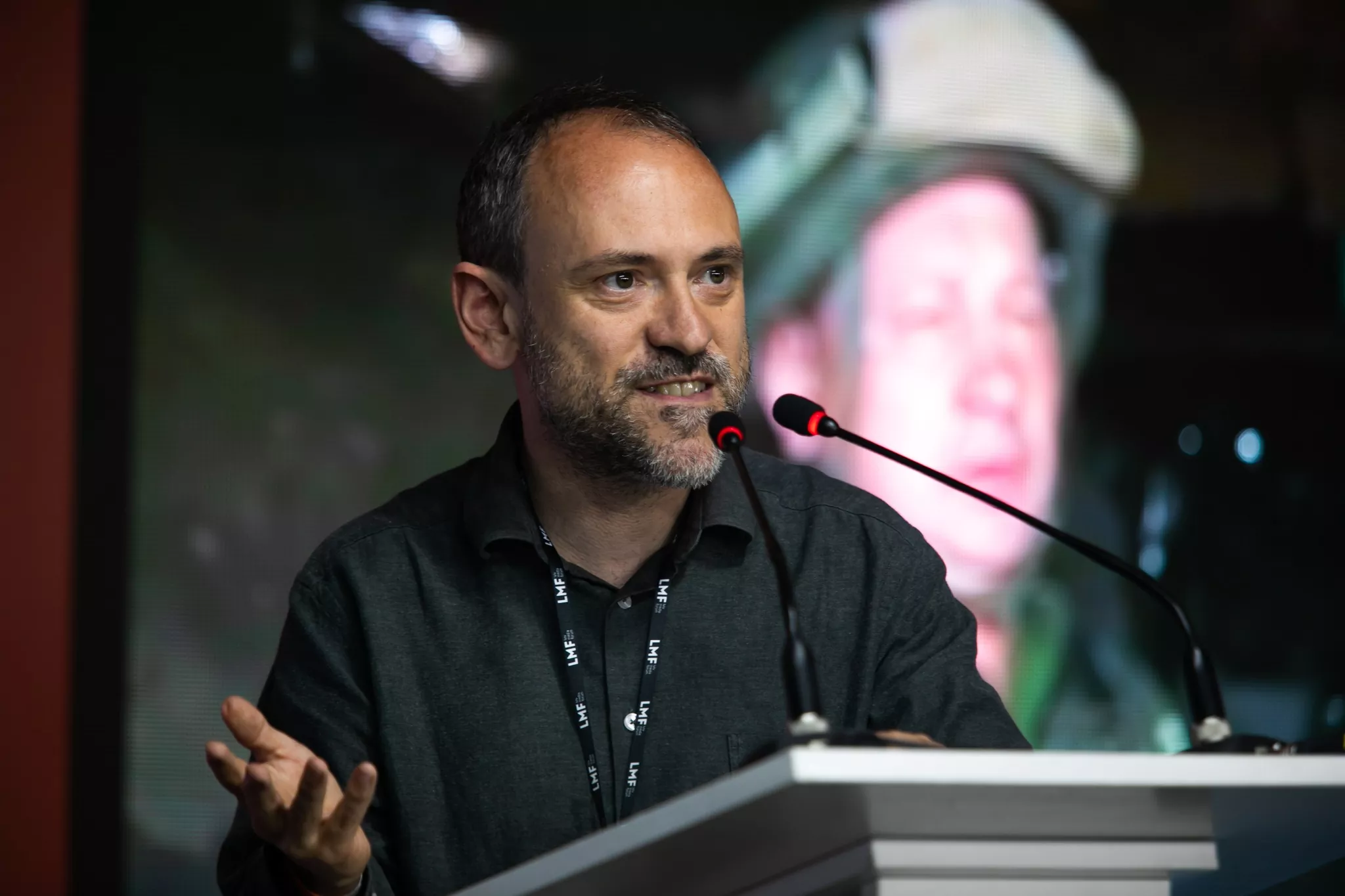
As soon as I saw it, I wrote to the office saying, “What the hell were you doing?” Everybody very quickly agreed and took it down. Nevertheless, we had problems with access [to report in Ukraine] for a little while after that. There was some threat to take away accreditation which never materialized, thankfully.
The story I’m working on now is about people in Ukraine who are trying to avoid being mobilized to the army. I’ve got people on tape talking about how much they want to run away. It contrasts with these inspiring stories of Ukrainians that we see, which are also part of the truth. I’m inclined to think that [it is necessary] to show the other side as well, not presenting all Ukrainians as amazingly brave heroes, but also presenting the reality of the fact that if there is full mobilization in your country because it’s under attack. You may be just very scared and trying to find ways to get out of it, and that’s also a part of being human. It brings on the reality of how bad war is. But I have to say, I’m not completely confident that this is a report that I should be making. I’m in a sort of tortured phase of editing the report, wondering what to put in and put out.
Related:
- Russian propagandists must be tried for inciting genocide and war – international lawyer
- Russian propaganda is a war tool and must be ostracized – military expert
- Ukrainian scholar: It’s time for the West to cut off academic ties with Russia
- How Russia justifies the murder of Ukrainians: Russia’s 2022 “genocide handbook” deconstructed
- Ukrainians hate Stalin, see the Russian aggression as a genocide: opinion poll
- Hunting fascism in Ukraine, you overlooked fascism in Russia
- Pushkin monuments disappear from Ukrainian streets following Lenin, as decolonization is underway
- Tribunal for Putin: a guide to holding Russia’s leadership accountable for war crimes in Ukraine
- Former RT anchor: I became the target of a Russian propaganda conspiracy theory




